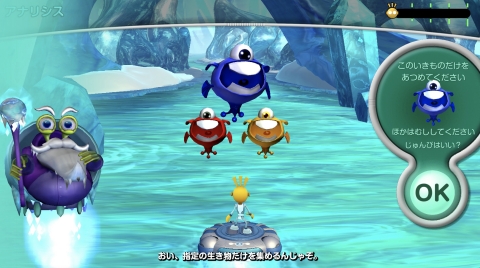BOSTON– Akili Interactive (“Akili”), a leading cognitive medicine company improving health through game-changing technologies, today announced topline results of a Phase 2 study of SDT-001 (Japanese version of AKL-T01), a digital therapeutic designed to improve measures of attention in children diagnosed with attention-deficit/hyperactivity disorder (ADHD). The study, conducted by Akili partner Shionogi & Co., Ltd. (“Shionogi”), was designed to evaluate the feasibility, safety and efficacy of the digital therapeutic in children with ADHD and to inform the design of a potential pivotal study. Results show the treatment was well-received by patients and demonstrated improvements in ADHD inattention symptoms consistent with those seen across previous studies of AKL-T01. Based on these results, Shionogi plans to advance SDT-001 into consultation with the Japanese regulatory authority PMDA regarding Phase 3 implementation.
“This study marks the first time a clinical trial of Akili’s technology has been conducted outside of the U.S., and we thank our partners at Shionogi who are helping us to develop this new treatment option for families of children with ADHD in Japan. We’re pleased to not only see a meaningful treatment effect that continues to validate our core technology, but also high engagement in the treatment,” said Anil S. Jina M.D., Chief Medical Officer of Akili. “Our goal is for all eligible children across the globe to be able to access our attention treatment, regardless of their spoken language and geographic location, this study represents an incredibly important milestone.”
The randomized, controlled study of SDT-001 was conducted in Japan and enrolled children ages 6-17 years diagnosed with ADHD whose ADHD RS-IV Inattention score was 15 or over. A total of 262 patients were enrolled across three study groups: 1) participants who received the Akili SDT-001 digital treatment, 2) participants who continued treatment as usual (TAU), consisting of psychoeducation and environmental support, and 3) participants who received a version of the treatment with reduced cognitive tasks and adaptability (“Sham”). The SDT-001 treatment group showed larger improvements across the clinical endpoints compared to both the TAU and the Sham groups. In the total population, the improvements seen over Sham did not meet statistical significance, but post hoc analysis applying the propensity score suggested that SDT-001 improvements over TAU were statistically significant. While full data are still being analyzed, early data showed additional SDT-001 efficacy compared to both Sham and TAU groups in specific subsets of children, including those with inattentive-type ADHD.
SDT-001 was well-tolerated and there were no serious adverse events. Adverse events reported were consistent with previous clinical studies of the digital treatment. Adverse device reactions were reported in 4 patients (3.7%) treated with SDT-001 and were mild in severity including irritability, somnolence, tinnitus and nausea.
To enable this clinical trial, Akili localized its AKL-T01 technology for use in the Japanese market, which included adapting for language and culture and establishing infrastructure in Japan to support the product. The technology is a disease agnostic proprietary technology designed to treat impaired cognitive function, specifically attention control. Delivered through an action video game experience, this first-in-class technology presents specific sensory stimuli and simultaneous motor challenges designed to target and activate the neural systems that play a key role in attention function while using adaptive algorithms to personalize the treatment experience for each individual patient. The technology has been evaluated as a potential treatment for cognitive impairments associated with nearly a dozen different disease areas and has been studied in more than 2600 patients across 30 clinical trials. AKL-T01, branded EndeavorRxⓇ, is cleared for use by the U.S. Food and Drug Administration (FDA) and has received Conformité Européenne (CE) Mark certification in Europe for use in pediatric ADHD. Please see below for full indication information on EndeavorRx and visit EndeavorRx.com to learn more.
Akili and Shionogi formed a strategic partnership in May 2019 for the commercialization of Akili’s digital medicines, AKL-T01 and AKL-T02, as treatments of cognitive impairments in children with ADHD and Autism Spectrum Disorder (ASD), respectively, in Japan and Taiwan. The partnership leverages each party’s distinct expertise to build a novel commercial model and launch the new class of treatment to patients. Under the terms of the agreement, Shionogi has exclusive rights to the clinical development and is responsible for regulatory filings, sales and marketing of the technologies in Japan and Taiwan. Akili is responsible for building and maintaining R&D and commercial platforms designed specifically for digital therapeutics, including all global product development activities, distribution and technical support services. Akili maintains exclusive global rights to develop and commercialize AKL-T01 and AKL-T02 in all territories outside of Japan and Taiwan.


